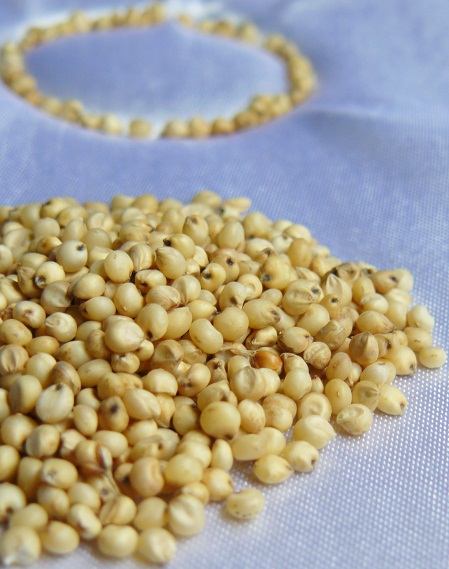
Sorghum is the fifth largest crop in the world after rice, maize, wheat and barley. Because it is extremely resistant to drought, it is usually grown in dry and semi-arid parts of the world. India is among the top five producers of sorghum or 'jowar' as it is popularly known among the Indian farmers.
Sorghum is the third largest crop to be grown in India after wheat and rice. More commonly known as jowar in the Indian sub-continent, it grows well in both summer and winter, and is thus both a rabi and khariff crop. 75% of the cultivated area is devoted to the production of sorghum. Maharashtra, Karnataka, Andhra Pradesh and Madhya Pradesh are some of the regions where sorghum is grown on a massive scale. Sorghum is used in many different areas because of its nutritional as well as commercial value.
Some of the areas where it is used are:
- As Food for Human Beings: Since sorghum contains many nutritional additives like protein, iron, calcium, etc. it is widely used as food for human consumption. It is used in the form of porridge, flour, malted & distilled beverage, etc.
- As Animal Feed: Sorghum is also used in the form of animal feed for livestock in many parts of the world. It contains almost the same nutritional content as maize, and is thus an ideal source of food for the animals. Because it also contains a high amount of tannins and phenolic acids, which can be harmful for some animals like cattle, it needs to be reprocessed to enable the sorghum grains to be digested by these cattle
- Commercial Uses: Sorghum also serves a lot of commercial uses. For e.g., the stems or fibers of the sorghum plant are used in making wall boards, solvents, bio-degradable packaging materials, fences, etc. Sorghum is also used in making ethanol, adhesives and paper.
Health Benefits Associated with Sorghum
Sorghum is a rich source of proteins and important nutrients like iron, calcium, potassium, etc. that are necessary to keep the body healthy. The presence of anti-oxidants in sorghum is believed to have reduced the risk of cancer, diabetes, heart disease, nerve disorders, etc. Grain sorghum also contains Vitamin B-complex that is also important for the steady growth of living beings. The presence of protein and starch in grain sorghum helps in slow digestion, and this slow digestion is beneficial for patients suffering from diabetes. For people unable to digest wheat related items, sorghum serves as an excellent replacement, again, because of its excellent digestion capability.








